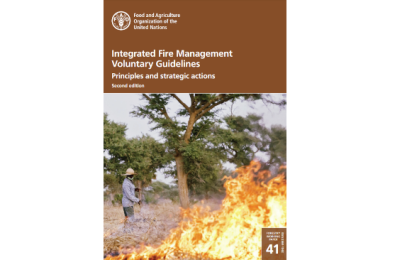The Food and Agriculture Organization of the United Nations (FAO) has introduced updated guidelines aimed at helping countries manage the increasing threat of extreme wildfires, exacerbated by climate change. The new publication, Integrated Fire Management Voluntary Guidelines: Principles and Strategic Actions, updates previous guidelines from two decades ago, reflecting the growing challenges posed by longer, hotter, and drier fire seasons.
The FAO warns that extreme wildfires could become 50% more frequent by the century's end, with current annual wildfire damage affecting 340-370 million hectares globally. These fires pose significant risks to sustainable development, local livelihoods, and contribute to greenhouse gas emissions.
The Director of FAO’s Forestry Division emphasized a shift from reactive responses to proactive strategies, prioritizing prevention and preparedness. The guidelines advocate for integrating scientific knowledge with traditional practices, involving Indigenous Peoples and local communities in fire management. They also call for gender inclusion, promoting diverse perspectives and innovative approaches.
The guidelines' release coincides with the launch of the Global Fire Management Hub. This initiative aims to strengthen global and national capacities for integrated fire management, seeking to mitigate wildfires' adverse effects on society and the environment.

